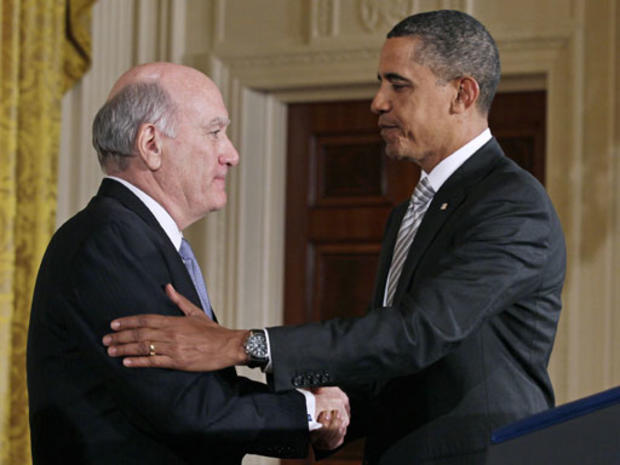New White House Team Supports Obama's Pragmatic Approach
This post originally appeared on Slate.
Last spring, when President Obama was considering whether to fire Gen. Stanley McChrystal, his top Afghanistan commander, some wondered whether the president really believed in the underlying counterinsurgency strategy that McChrystal was pursuing. Those questions were answered emphatically when Obama picked Gen. David Petraeus, who co-authored of the manual outlining the strategy.
The president has done a similar thing naming William Daley as his chief of staff. Anyone who wondered whether the pragmatic Obama of the lame duck session--willing to take a deal rather than have an ideological fight--would continue in the new year has gotten their answer. In a December 2009 op-ed for the Washington Post, Daley wrote that top Democrats need to "acknowledge that the agenda of the party's most liberal supporters has not won the support of a majority of Americans--and, based on that recognition, to steer a more moderate course on the key issues of the day, from health care to the economy to the environment to Afghanistan."
In his new job, Daley will decide who gets to see the president and whose ideas he sees. Obama still runs the show, but he wouldn't have picked a chief of staff who held those views if he didn't also share them. (For a view on Obama's governing strategy, return to his last answer at the press conference, in which he announced his deal with GOP leaders for extending the Bush era tax cuts.) "He is more pragmatic than people think," said a senior white House official. Speaking about Daley, another top official said: "He shares the president's values and goals but is open about how you get there."
Daley will present that view to the public. He will be a spokesman for the administration that is losing two of its voices in adviser David Axelrod and Press Secretary Robert Gibbs. On the inside, administration officials say Daley will work to improve ties with business. Not only has he been a banker for JPMorgan for the last seven years, working with CEOs and large companies. He also worked that account when he was Commerce secretary in the Clinton administration. He also sits on the boards of Boeing and Abbot Laboratories.
The Chamber of Commerce put out a statement heralding Daley's appointment. Union leaders did not.
Daley also knows how campaigns work. You may remember him from election night 2000, when he announced that Al Gore would not be conceding. He was chairman of Gore's campaign. That, too, will be an important business connection, because the Obama administration wants improved relations with the business community not only to help the U.S. economy but also to help the president's election chances. In the 2008 cycle, Democrats received 70 percent of donations from Wall Street. In the last election cycle, as Andrew Ross Sorkin reported in the New York Times, that ratio flipped.
Obama will announce Friday that Gene Sperling will head his National Economic Council. Sperling was an indefatigable part of the Clinton team that battled with the Gingrich-led Congress in the mid-'90s but also made deals with it. Obama's White House 2.0 is not being staffed to stage flamboyant ideological displays. The president is bringing on staffers on to fight a war with a new set of rules.
More from Slate:
Secretary Robert Gates' dramatic (but limited) plan to cut defense spending.What House Republicans left out when they read (parts of) America's founding document.
Does International Aid Keep Haiti Poor?
John Dickerson is a CBS News political analyst. He is also Slate's chief political correspondent and author of On Her Trail. You can also follow him on Twitter here.


